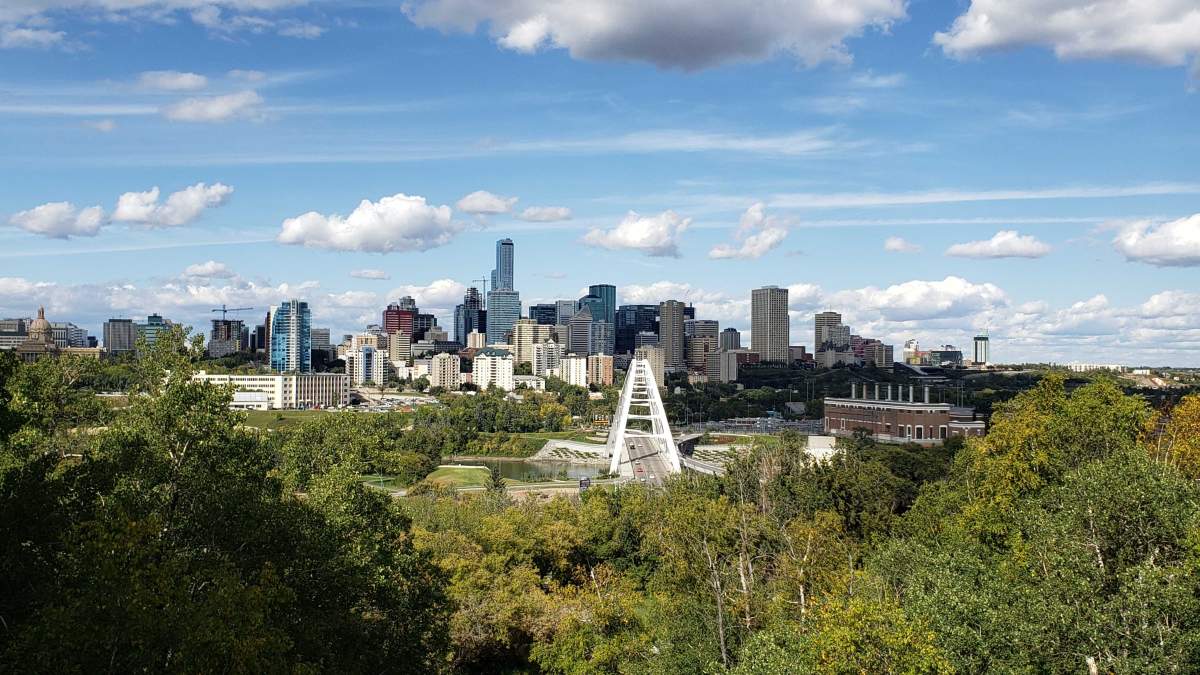The city is about to sign a memorandum of understanding with the Alberta Ecotrust Foundation, which will lead to a $22-million investment in green technology.

It’s one segment of the $183-million Climate Innovation Fund that was announced in the federal budget in March 2019.
Edmonton will be part of the low-carbon cities network in a cross-country effort to reduce urban greenhouse gas emissions.
Overseeing the fund in Edmonton and Calgary is program director Mike Mellross, who crossed over in April, joining Alberta Ecotrust from the City of Edmonton, where he supervised the Energy Transition and Utility Supply unit and managed the file for the city.
Alberta Ecotrust will use a large part of the $22 million to distribute grants for organizations to pursue a low-carbon economy, while also investing in projects in the city to reduce greenhouse gas emissions.

“Potentially business ideas that are in the incubation phase, ready for scale up and deployment, but just need that little bit of a nudge,” Mellross said.

Get daily National news
“So that’s the space that we’re going to try to move in, really get to the point of scaling up some existing processes and technologies and that’s where the $22 million will come in.”
“It’s unlikely we’re going to be deploying rebate cheques or the like, similar to what Energy Efficiency Alberta did,” Mellross said. “But we certainly could be working in the realm of residential construction.
“One of our early focus areas is building better and retrofitting wiser and that certainly could mean some types of programming around the scaling up of technology.”
He expects money to start to go to individual projects in the fall of 2021.
“The funding is about reducing community emissions,” he said. “That certainly could mean we could partner with the municipality directly at the project level.”

The timing comes as Edmonton tries to rebound its economy after the pandemic. Mellross sees a shift in how we go about doing our day-to-day work as shifting quickly, both with transportation changes meaning morning and evening rush hour might not be what they once were, and how much more we’ll depend on being in our own homes.
“A lot of the energy that we’re using in our downtown offices we’re now using in our homes. We’re seeing that energy use increase and there’s a potential for us to leverage that and say: ‘One of the things you could do is focus on retrofitting your home, to improve the comfort of the home, the functionality of the home, but also that would reduce the emissions in the home.'”

A report will be released to Edmonton city council, when the agendas for the June 8 meeting are published on Thursday, that recommends council endorse the MOU with Ecotrust.
“We’re very excited to start to work with the city and that really is one of the triggers we need to make in order to get the funds to come to us,” Mellross said.
“We’re looking forward to building up programming to help build up a prosperous Edmonton and help with its economic recovery as we get over the COVID crisis.”
The City of Calgary is also getting a similar $22-million share from the national fund, which is being administered through the Federation of Canadian Municipalities.






Comments